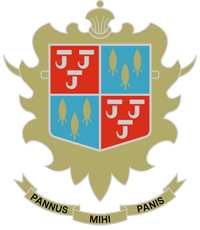Planning Committee
Planning Committee
To view the agenda and reports for this meeting, please click on the following link: https://www.kendaltowncouncil.gov.uk/wp-content/uploads/2013/12/08-04-24-Planning-Committee-Agenda-Pack.pdf
A second Royal Charter followed in 1636 when King Charles I gave Kendal the right to a Mayor (a privilege still enjoyed today) and a Sword of State. Kendal is one of only forty-seven towns to have been awarded such a sword. Even today the sword is carried in front of the Mayor and mace-bearers on civic occasions and is placed on the altar of the Parish Church on Mayor’s Sunday to represent the sovereign receiving authority from God.
The third Charter was granted in 1684 by Charles II and is virtually a repetition of that of 1636. Its purpose was principally to raise revenue for the King and a substantial payment was required from the town. Thomas Braithwaite, a former Recorder (judge) gave a large tankard, to mark the receipt of this Charter. Again, this historic item is still in the Town Council’s possession.
The 16th to 18th centuries saw little major outside activity, apart from the Plague of 1597/98, which decimated the population, the Civil War and the Jacobite Risings of 1715 and 1745. The Civil War saw one of the more bizarre incidents in Kendal’s history when a soldier (Robert Philipson, known as ‘Robin the Devil’) rode his horse into the Parish Church in pursuit of his enemy, Colonel Briggs. The angry congregation drove him away, knocking his helmet off. The helmet, and a sword, hangs in the Church to commemorate the incident. The main memory of the events of 1745 is that Bonny Prince Charlie slept in a house in Stricklandgate on his way back to Scotland after his defeat at Derby (the same bed was slept in by his pursuer, the Duke of Cumberland, on the following night!).
To listen to a BBC interview with Mr Peter Cannon, retired Mayor’s Attendant, on items in the Mayor’s Parlour, please click on this link:

Find out more

Information
about Kendal’s
allotments

Learn about
The Mayor
of Kendal
To view the agenda and reports for this meeting, please click on the following link: https://www.kendaltowncouncil.gov.uk/wp-content/uploads/2013/12/08-04-24-Planning-Committee-Agenda-Pack.pdf
To view the agenda and reports for this meeting, please click on the following link: https://www.kendaltowncouncil.gov.uk/wp-content/uploads/2013/12/08-04-24-Full-Council-Agenda-Pack.pdf
To view the agenda and reports for the meeting, please click on the following link: https://www.kendaltowncouncil.gov.uk/wp-content/uploads/2013/12/15-04-24-Culture-and-Communities-Committee-Agenda-Pack.pdf
To view the agenda and reports for this meeting, please click on the following link: 22-04-24 V2 Planning Committee Agenda Pack
To view the agenda and reports for the meeting, please click on the following link: https://www.kendaltowncouncil.gov.uk/wp-content/uploads/2013/12/22-04-24-Audit-Committee-Agenda-Pack.pdf
